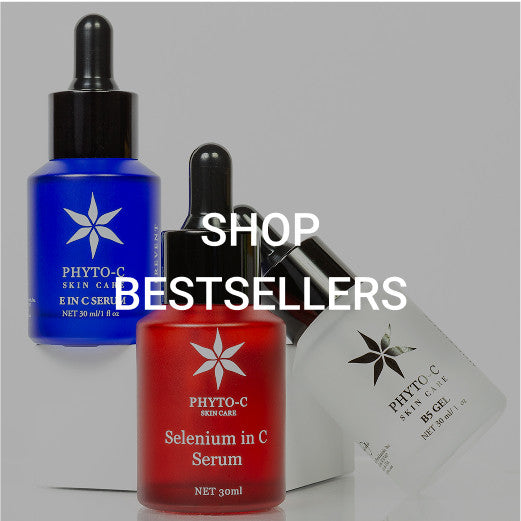Your skin stability becomes challenging due to its reaction to all forms of products and environmental elements, no matter how gentle. Daily skin care presents itself as a careful endeavor because unexpected redness and dryness, as well as skin itchiness, appear. The wrong selection of serum may cause breakouts along with discomfort and enduring skin irritation. The use of antioxidant Vitamin C serum for sensitive skin stands as the recommended one, according to expert recommendations. Protection against inflammation and brightening of the skin occurs alongside enhanced protective barriers offered by these serum products. Sensitive skin types can select vitamin C serum with optimal concentration and form to choose an ideal solution.
Common Daily Issues Faced by Sensitive Skin
Multiple everyday challenges are typical for sensitive skin, which creates situations that lead to frustration or discomfort. The main issues that sensitive skin faces daily include the following group of problems:
Skin redness together with inflammation occurs specifically from heat exposure or harsh skincare components and allergens.
The skin tends to become dry and form small flakes throughout seasonal changes as well as during low humidity conditions.
- Itching or burning sensation: Even from mild cleansers or moisturizers
- Breakouts: Caused by overuse of harsh exfoliants or wrong product layering
- Skin tightness: Often due to barrier damage or dehydration
The symptoms of sensitive skin become worse when exposed to pollution, inadequate water delivery, and improper skincare routines, so people need supportive skincare products such as vitamin c skin care solution.
Why Choosing the dermatologist recommended vitamin c serum for sensitive skin Is Critical?
Care for delicate skin requires mild but efficient skin care practices. Strong active ingredients and abrasive scrubs, together with alcohol-based products, will trigger reactions on the skin. The protective layer of sensitive skin tends to be either impaired or diminished in thickness; therefore, aggressive skin treatments will make the condition worse. A proper skincare routine needs to match antioxidants with both protection and hydration elements. Dermatologist recommended vitamin c serum for sensitive skin contain lightweight elements that lack alcohol content as well as alcohol-based or paraben-based ingredients. Areas of sensitive skin need sunscreen at all times since UV rays heighten inflammatory reactions in the skin. Using an appropriate vitamin C serum in addition to this skincare regimen improves skin sensitivity while minimizing redness together with environmental protection benefits without causing skin irritation.
Common Skincare Mistakes People Make with Sensitive Skin
- Damaging the skin barrier occurs when individuals exfoliate their skin both too frequently and through physical scrub usage.
- Multiple active skin components, from retinol to AHA and BHA, along with vitamin C, should not be layered together unless under expert advice.
- Dryness and irritation occur in sensitive skin because its lack of moisture frequently goes unnoticed.
- The development of sensitivity and inflammatory reactions is worsened by not using sunscreen.
- People with sensitive skin should avoid using multiple products at the same time because frequent changes trigger skin reactions.
The practice of avoiding these typical mistakes allows people to maintain their healthy skin barrier so vitamin C soothing ingredients can work effectively. That is why choose vitamin C serum for sensitive skin online after being sure that all the needed supplements are provided.
Why Vitamin C Is a Trusted Antioxidant for Skincare
The skin barrier receives dual protection from vitamin C while its cell regeneration process improves, and it helps reduce both environmental pollutants and ultraviolet rays. Regular use of low- to moderate-dosage vitamin C helps sensitive skin find better texture while minimizing fatigue and giving the complexion a natural, radiant appearance. Using vitamin c for sensitive skin as an anti-inflammatory ingredient provides better safety than stronger exfoliating serums do.
What Is the Right Form of Vitamin C for Sensitive Skin?
Pure L-ascorbic acid represents one form of vitamin C that sensitive skin cannot withstand. The pure chemical form, L-ascorbic acid, functions as an irritant during high-strength usage. Sensitive skin needs milder vitamin C derivatives like sodium ascorbyl phosphate alongside magnesium ascorbyl phosphate. Unlike pure L-ascorbic acid, these alternatives are more resistant to decomposition while presenting lower safety concerns regarding inflammation. These forms of good vitamin c serum for sensitive skin feed antioxidant benefits to your skin gradually while being less likely to trigger irritation in reactive dermatological tissue. You should opt for a vitamin C serum with a 5% to 10% concentration that uses water-free or buffered bases as its preferred formulation. Users can experience enhanced radiance through a mild version of the product, which prevents both redness and stinging.
How Vitamin C Serum Works for Sensitive Skin?
Skin-sensitive users should use vitamin C serum both for protection and tissue restoration purposes. The outer skin layer allows vitamin C serum to penetrate in order to decrease free radicals responsible for inflicting cellular damage. The persistent usage of vitamin C serum provides better barrier strength to the skin while minimizing redness appearance alongside reducing inflammation. The proper production of collagen becomes possible through exposure to vitamin C serum, which makes delicate skin seem both firmer and healthier. The application of vitamin c serum for sensitive combination skin supports uniform skin coloring and minimizes light acne scars together with skin discoloration. Sufferers of sensitive skin can expect reduced irritation alongside better skin sparkle. The solution requires calming agents such as hyaluronic acid or aloe vera, which prevent the drying up of the skin.
What Makes Other Serums Less Suitable for Sensitive Skin?
Additional serums with strong exfoliating components and retinoid substances might stimulate sensitive skin beyond safe levels. Normal and oily skin types benefit from glycolic acid, salicylic acid, and high-strength retinol, but such ingredients regularly result in sensitive skin experiencing redness, peeling, and itching. Several anti-aging serums contain additional fragrance along with alcohol, which performs as a skin irritant. Natural oils that do not match one's skin type can result in blocked pores as well as skin breakouts. Patients with sensitive skin may find the perfect care support in correctly chosen vitamin C serums because they provide multiple benefits without irritating their skin.
What Makes a Vitamin C Serum Ineffective for Sensitive Skin?
A vitamin C serum becomes less effective when used by people who have sensitive skin due to multiple related elements. Topical application of a serum containing more than 20% concentration may lead to skin sensitivity as well as burning, redness, or itching. The combination of air contact and light exposure causes vitamin C to become chemically weaker. Failure to store the product correctly and use dated serums reduces both its effectiveness and performance capabilities. Performing vitamin C treatment too soon after exfoliating the skin with harsh chemical actives will make your skin more sensitive. Applying vitamin C without sunscreen and moisturizer will reduce its measured benefits and potentially create additional harm to the skin. A person should select gentle formulas and follow proper application instructions to maintain the effectiveness of their product.
Best Ingredients to Combine with Vitamin C for Sensitive Skin
Using selected ingredients with vitamin C increases its effectiveness for caring for sensitive skin. Look for serums that combine.
Hyaluronic Acid
Hyaluronic acid functions as a light moisturizer, which helps attract moisture to the skin, resulting in smooth and peaceful skin with non-occluded pores. Vitamin C works well with hyaluronic acid because it avoids dryness-related complications, thus ensuring comfort for sensitive skin types.
Vitamin E
As a potent antioxidant agent, vitamin E partners with vitamin C to protect skin barrier systems and neutralize harmful free radicals. This protective agent provides additional nourishment and helps decrease skin inflammation, which benefits people with sensitive or easily agitated skin types.
Ferulic Acid:
Ferulic acid promotes the prolonged effectiveness of vitamin C through serum formulation by increasing its stability. The antioxidant effectiveness increases while the product stays fresh for a longer period thanks to this addition. Such a combination provides superior protection from sun exposure and early skin aging effects, which are vital considerations for those with delicate skin.
Niacinamide
Niacinamide provides effective calm and oil control, but users should apply this ingredient at different times than they use vitamin C. Rotation of these ingredients correctly in the routine enhances skin resistance and minimizes facial discomfort while maintaining consistent skin color without sensitive reactions.
Aloe Vera or Chamomile Extracts
Botanical elements in this product show anti-inflammatory action and provide soothing effects. Through their calming properties, these additives help prevent possible irritation from vitamin C and other active ingredients, thus enabling the serum to be used daily on sensitive skin.
The ingredients enhance skin sensitivity while reducing potential irritation to permit vitamin C effectiveness in a well-rounded skincare regimen.
When and How to Apply Vitamin C Serum for Sensitive Skin
The most suitable period for vitamin C serum application happens in the day following skin cleansing and preceding sunscreen application. The starting dose for vitamin C serum on sensitive skin must be limited to 2–3 weekly applications, which can gradually increase based on skin tolerance. After cleansing the skin, apply several drops and finish by covering it with a lightweight moisturizer and SPF 30 or higher. You should wait until 15 minutes after exfoliation or before combining vitamin C with intense acids. Serum use is permissible at night, but keeping to daytime application brings additional protection against environmental threats. Apply the serum carefully through patting motions instead of rubbing for irritation prevention. Prior to complete usage, every person needs to do a patch test because it is vital for new customers.
Conclusion
Vitamin C serums with antioxidant properties represent a non-irritating and effective method to obtain healthier skin that appears brighter for individuals with sensitive skin types. Vitamin C demonstrates superior benefits in skincare due to its calming while fixing skin damage, together with its protective properties above harsher serums on the market. The correct form of application with patient usage of this product makes it possible to protect the skin barrier while improving radiance without causing any damage or discomfort to the skin. Using correct skincare sequences together with proper usage of vitamin C products leads to successful long-term effects. The best serum for sensitive skin dermatologist recommended is the Phyto-C products that provide dermatologically suitable choices that specifically support sensitive skin along with other skin types.


 My Account
My Account Our Story
Our Story Shipping Information
Shipping Information Returns
Returns FAQ
FAQ VIP Rewards
VIP Rewards Contact Us
Contact Us

 Next Post
Next Post